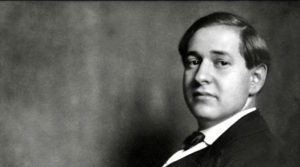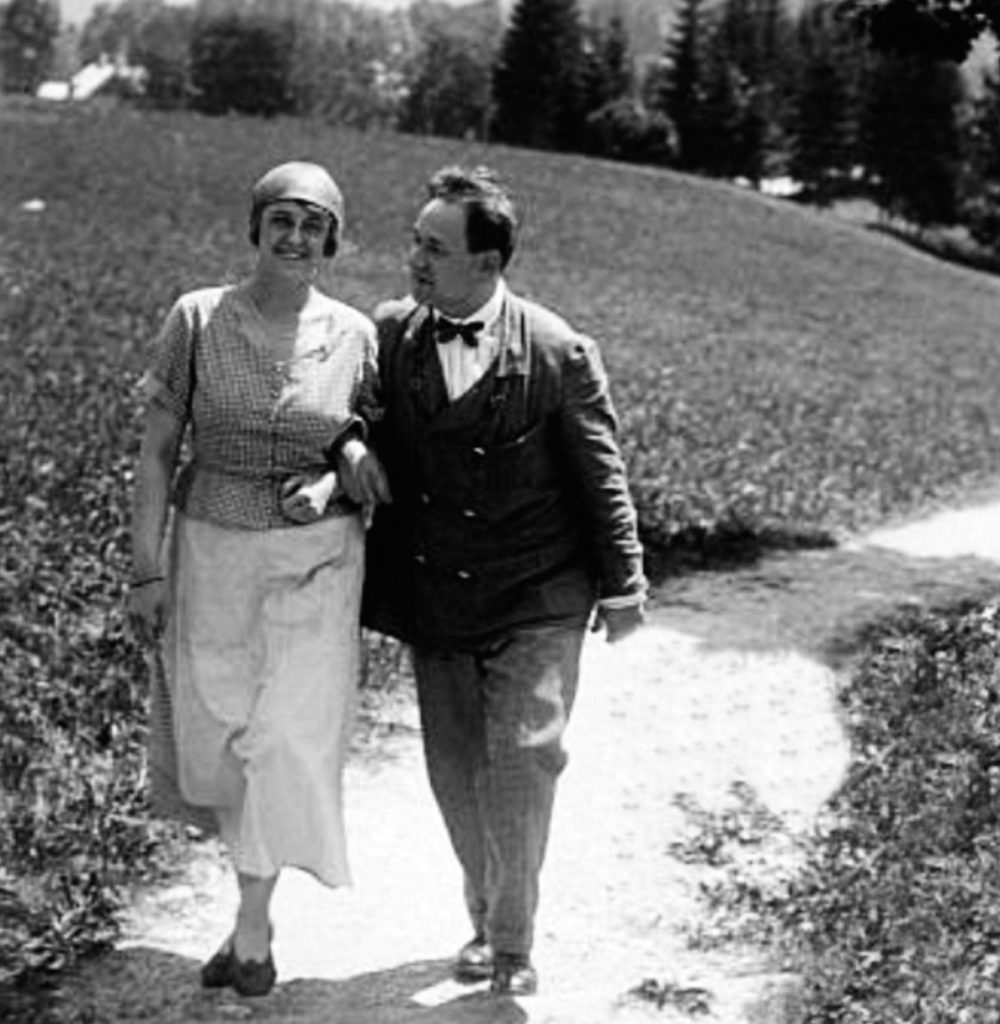DIE KATHRIN
APRIL 7 and 9, 2022
Why not opera? Why not us? Why not Korngold?
In our 15 years of translating and producing Viennese and German operettas, it was impossible to overlook the fact that literally all of these shows were created by Jewish composers or librettists. We also learned that nearly all of these artists were forced into exile, persecuted, or murdered during the years of the Third Reich.
 It seems only natural that we turn our attention to opera. Many of the most prominent opera composers and librettists of the twentieth century suffered similar fates: censorship, imprisonment, exile, or worse. We hope to bring renewed attention to these neglected composers.
It seems only natural that we turn our attention to opera. Many of the most prominent opera composers and librettists of the twentieth century suffered similar fates: censorship, imprisonment, exile, or worse. We hope to bring renewed attention to these neglected composers.
The Korngold Initiative is our fundraising campaign to bring Erich Wolfgang Korngold’s rarely-heard opera, Die Kathrin, to Chicago for its American premiere. We are raising $175,000 so that we can employ local Chicago singers, actors, musicians, artists, and designers for a new production of the opera in April 2022. Our version will be faithful to Korngold’s original intention to set the show in occupied Germany following the First World War. Die Kathrin will be performed in German with English supertitles.
HISTORY
One of the most unjustly neglected composers of the twentieth century was Erich Wolfgang Korngold. A child prodigy, he was praised by Gustav Mahler and Richard Strauss and considered by many to be the successor to Mozart and Beethoven. His father, the prominent Viennese music critic Julius Korngold, was careful to nurture his son’s remarkable talent, securing composition lessons for the boy with Alexander Zemlinsky. Erich Wolfgang Korngold already had a sizeable body of work to his credit when he burst onto the world stage with his opera, Die tote Stadt, in 1923, at the tender age of 19.
The strange relationship between the Nazi regime and the arts has been well documented. The Nazis sought to eradicate art that they saw as “degenerate” or whose creators they deemed racially impure. At the same time, if a work or genre was popular, they would attempt to co-opt it for propaganda purposes. These two competing tendencies often led to policies that were contradictory, illogical, and downright hypocritical.
Many of the finest artists of the time were forced into exile, while those who were unable to leave faced persecution, imprisonment, and death. Korngold was able to escape to the U.S., where he took up residence in Hollywood. There, Korngold became one of the leading film composers of his time, receiving two Oscars and setting the standard for film scores for years to come.
Despite this success, however, Korngold’s operas were not performed. The tastes of the concert- and operagoers had turned away from turn-of-the-century romanticism. Korngold’s music, with its lush harmonies, was considered out of date.
There were other obstacles. Anti-Semitism prevented his works from being performed in the 1930s and 1940s, and the deeply entrenched presence of Nazi sympathizers in major European artistic institutions after the war meant that Korngold’s music would not be revisited.
Die Kathrin was Korngold’s last opera. He began working on it in 1933 when he was engaged in re-orchestrating some of the classic operettas of Johann Strauss Jr. and Leo Fall. A first performance, scheduled for 1938 in Vienna, was canceled. This opera by a Jewish composer, depicting a love story between a German woman and a French soldier in French-occupied Saarland, was destined to run afoul of Nazi censors. The opera received its European premiere in Sweden in 1939, where it was given an overly harsh and anti-Semitic review. To make matters worse, Die Kathrin was almost lost forever when the Nazis broke into Korngold’s villa to destroy his work. Michael Haas, in his book, Forbidden Music, writes: “Weinberger [music publisher] employees broke into the cellar, recovered what was left of the manuscript, and returned it to Korngold by interleaving sheets between pages of Beethoven, Mozart, and other acceptably ‘Aryan’ composers and posting them to the composer in California.”
Die Kathrin was finally given its Viennese premiere in 1950 but ran for only eight performances. In 1997 a complete recording of the work was created by the BBC Orchestra.
Since then, the work has seldom been performed. Its music, however, is compelling and masterfully written. It deserves another look.
Folks Operetta is uniquely suited to the task of reviving Korngold’s masterpiece. We have a proven track record in bringing neglected works to life with fresh, lively productions. Since 2007, we have presented a large body of unknown works. We have done this at a fraction of the budgets of other companies while remaining true to the intentions of the composers and librettists and never compromising the quality of our productions.
Be a part of the Folks Operetta experience and make your donation today!

